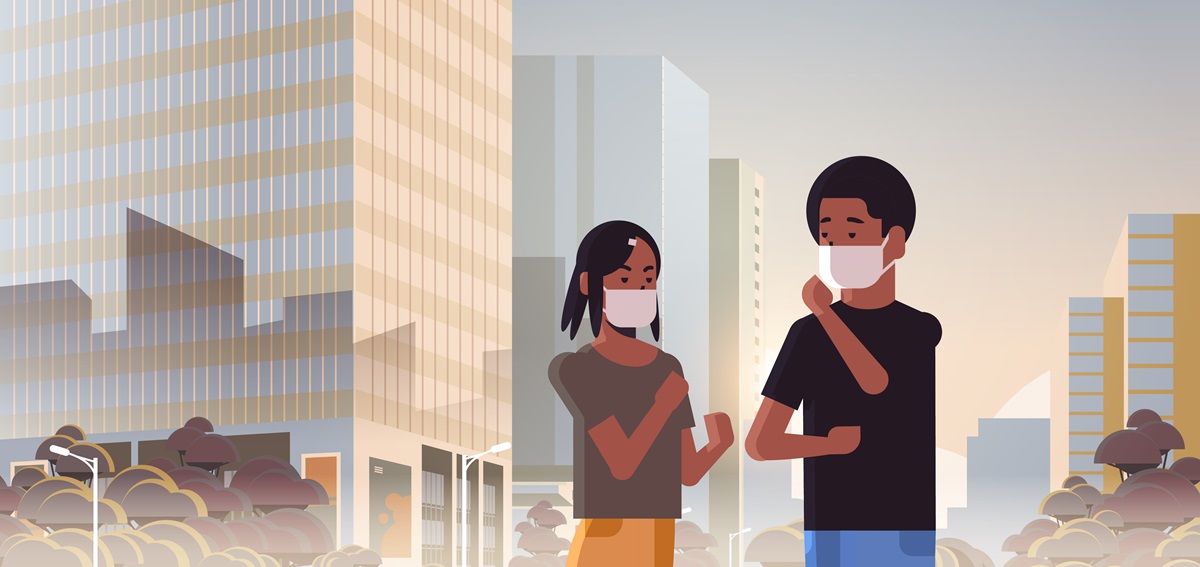
If we need more than juggling our lives during a festive season, the peak pollution and the seasonal shift make it even more challenging for us to maintain a healthy lifestyle. The last 10 years have been tough, especially in metropolitan cities, as pollutants have increased over time, and adequate measures have yet to be taken to reduce air pollution during these months. While there is only so much one can control, it is essential to understand the implications of this seasonal change to avoid health hazards, especially those related to our respiratory health.
The link between Seasonal Shift and Low AQI
The months of October and November are particularly significant in the Indian calendar. The months are the seasons of celebration and festivities and mark the transition from monsoons to winter. Traditionally, this seasonal shift leads to cooler temperatures and a drop in wind speed. However, with increasing air pollution, pollutants become trapped close to the ground, resulting in dense smog, exacerbating the already deteriorating air quality in many Indian metropolitan cities. Studies have shown that cities like Delhi often witness air quality indices (AQI) soaring into the hazardous category, leading to respiratory problems like Asthma, COPD (chronic obstructive pulmonary disease), Bronchitis, cardiovascular diseases, Skin diseases and other severe health conditions.
Hazardous air quality, leading to dangerous levels of AQI, also weakens the immune system. Health vulnerabilities, especially those related to respiratory issues, are magnified at disturbing levels for those exposed to bad air quality. Hospitals frequently report increased respiratory cases during this time, which stresses healthcare systems more.
Avoiding Respiratory Problems in this Air Pollution: What can one do?
While there are many external factors that we cannot control, a few things can be done to safeguard our health, even with the rising air pollution during this season. Here are 5 tips one can follow:
- Avoid Exercising Outdoors: Limit your outdoor activities during peak air pollution, especially if you are prone to respiratory problems. Check your local AQI forecasts regularly before planning any activity that requires you to be outside. If the AQI is bad and the air quality is reaching dangerous levels, avoid stepping out as much as possible.
- Face Masks: The COVID-19 pandemic showed us the importance of using face masks. Face masks act as a shield to keep pollutant particles from entering your nasal cavity. Keep up the practice, as it helps keep the viruses at bay.
- Invest in good-quality air purifiers: Air purifiers can help improve indoor air quality to a certain extent. If you are prone to respiratory problems, consider investing in an air purifier to minimise the harmful effects of air pollution.
- Home remedies to boost immunity: A glass of Kada in the morning can help combat throat-related issues. Look for safer alternative treatments from the AYUSH system of medicine to overcome the tendency to allergies during seasonal change. However, if allergies persist and alternative therapies don’t work, visit your nearest healthcare facility immediately.
- Maintain a dust-free environment at home: Dust can trigger allergies and respiratory problems. Use a wet cloth regularly to clean areas in houses that are prone to dust collection.
While these may seem straightforward tips, they can help you combat the perils of air pollution and combat triggering respiratory problems this season, improving your health and well-being in the long run. Are there any practices you follow to avoid respiratory issues in this season? Tell us in the comment section.



